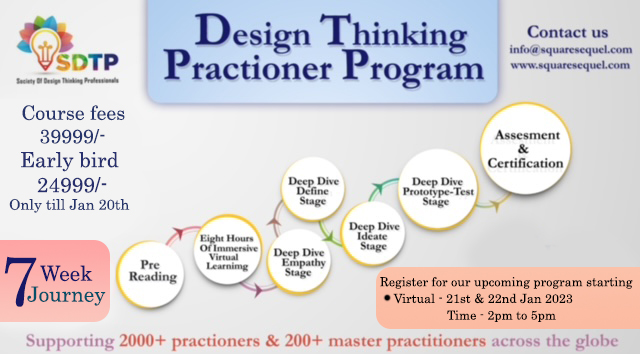As Albert Einstein quotes a goal, “If you want to live a happy life, tie it to a goal, not to people or things.”
We, as humans, tend to look up to others and wonder why they are doing so well in life without making much effort. We often say, “Successful people keep getting successful, and unsuccessful people always follow the path of failure.”
Why is it so? What is the difference, or what is that they do differently? The only distinction between successful and unsuccessful people is Goals. People who have goals know the “whats” and “hows” in their journey. Whereas, when people have no goals, they usually end up believing that it is the pattern of their lives and accept their circumstances.
Why Do We Need Goals In Our Life?

Let’s use a metaphor to understand this: there are two ships, and they both start their voyage together. The first ship has everything in control and planned, and knows where it is heading. It has its voyage mapped out, and the captain and the crew have complete information on how long it will take to reach their destination. The chances are higher that it will get to its destination safe and sound.
While the other ship has no idea where it is headed and there is no one onboard to set the sail only. Its engines are on and it is on an unknown journey, where there are higher chances that it might end up either sinking, coming in the way of another ship, or ending up deserted on some beach completely wrecked.
The same scenario stands true in humans also. If we do not give ourselves goals, or a path to reach somewhere, we will end up having a troubled life, and then we will call it our destiny. If we don’t want to end up like the wrecked ship, then we have to organize, plan, execute, and work to have proper goals in our lives like the first ship.
Here are a few more reasons to have goals in life:
1. Goals Set Direction In Life
Once you are aware of the changes you want to make in your current state, those changes will give you a path to follow, just the small steps in that direction. If you want to establish a business, you will start by gathering knowledge about the establishment. Your goal to have a successful business gives you a clear vision of all that will be required to accomplish it.
In the end, it will all be about making choices that will pump up your resilience towards achieving your goals. If you are determined to fulfill your goal, you will enhance your decision-making skills in the process.
2. Goals Make You Record Your Progress
The speed of achieving goals is directly proportional to the progress you make throughout your journey. When you set off to accomplish your goals, you make progress every day, and that progress keeps fueling your motivation to reach the ultimate destination. Your daily practices towards your goal set your day-to-day progress on autopilot, speeding up the process.
Suppose you want to learn something new. You will start with finding the course online, and it has 10 sessions. You commit to completing one session every week, so you have given yourself a timeline of ten weeks to complete it. If you are doing as decided, then you are on the right track, else you need to rethink the commitment and what you can do about it.
If you keep track of your progress, then it will be easier to accomplish your goal in the given timeline.
3. Goals Keep You In Charge
As it was your idea to set the goals in the first place, it is your responsibility to bring them to life. If you are delaying or postponing the work needed to be done, to achieve it, then you have to rewind and start again.
If the scenario is the opposite, and it is easy for you to achieve your goals, then you can plan for something bigger and more challenging than before to achieve this time. There is no way to hide behind your goals, the pace of your goals will reflect your honesty towards them.
4. Goals Keep The Motivation High
The journey from “I wish to be happy,” to “I am content and happy,” can be incredibly motivating. Every single step is progress, and this little progress contributes to massive progress waiting for you at different destinations of your journey.
When you use goals to design your life, you can reward yourself with many smaller triumphs that keep you on track. It’s far too easy to cruise from thoughtless activity to thoughtless action without ever truly accomplishing what you believe you desire.
5. Goals Chuck Away Your Mental Blocks
You might have heard of terms like procrastination, perfectionism, writer’s block, or mismanaged priorities. If you ever find yourself sticking to any of these terms, then setting goals can help you lose strings with anything that is holding you back.
If you find yourself spending too much time on social media, and then complain about not getting proper time and focus to work, then setting goals in small steps to get your focus back can work for you. Discipline yourself that you will only give 30 minutes of the day to social media, and then it will get easier with time to take your hands off of social media.
This way you will get ample time to chuck away your mental block with a goal in place and keep a record of it. You can track your progress by checking the work done in a day. If you were able to make some progress, then kudos! If something is lacking, then you can start over the next day.
Having said that, if you’re serious about personal development, you can’t do what most people do and abandon their New Year’s Resolutions by February 2nd. You must continue to set and achieve your objectives. After your initial enthusiasm has faded, evaluate what you’re doing and figure out how to keep yourself driven to stay on track.
What Are The Known Goal Setting Techniques?
Setting goals entails making plans and taking action to accomplish any desired objective. A well-defined objective motivates us to take action and provides us with a clear path to follow.
Here are two incredibly successful goal-setting strategies to help you achieve your targets:
1. SMART Technique

This technique gives way to the people who are new to goal-setting. According to this, a goal should be SMART – Specific, Measurable, Attainable, Relevant, and Time-bound.
- Specific: When you know your next goal, making money or being successful, you have to use specific details to give meaning to your goals. Making money or being successful seems to dangle with loose ends. You can use the words like, “I will learn some new skill, to make extra money via freelancing.” This sentence will give a clear meaning and specific details to your goal.
- Measurable: If you truly want to have a real chance at getting what you want, then make it measurable. Earning a penny is still earning, and technically, losing an ounce is losing weight. It is all about quantifying your success.
- Achievable: Can you achieve something that you think is unachievable in the first place? I guess it’s too late for me to complete my academics now. When you give your goals self-doubt, there is no way of achieving them. So, always set achievable goals to make them find their way to you.
- Relevant: Whatever your goals are, they should match the frequency of your bigger goals. If the goals are contradicting, then it can hinder your progress in the future. Getting a promotion will need you to enhance your skills for an upgrade, a cooking course will not fit the bill. Make relevant small goals to find your way to the bigger ones successfully.
- Time-bound: Tomorrow is a synonym of never. If you leave your work for tomorrow, there is a chance of never doing it. Your objectives must be specific and not ambiguous. They are simply not going to occur. Rather, whatever goals you create should have a reasonable timeline or deadline. This could be a week, a month, six months, or even a year, depending on the goal.
2. WOOP Technique

It is a technique known to improve efforts, reduce insecurity-based behaviours, and increase commitments in the people who set goals according to it. WOOP is the abbreviation for Wish, Outcome, Obstacle, and Plan.
- Wish: It is something you deeply and truly desire to achieve, it might be challenging, realistic, and exciting at the same time.
- Outcome: When you set a goal, and see the result, the outcome. The way it makes you feel is something to stick to, as it becomes the driving force to reach that outcome.
- Obstacle: When there are goals, there will be obstacles, and victory lies in making those obstacles your stepping stones. This is the phase that gives birth to inspirational stories.
- Plan: It is where you give yourself an alternative solution to pass the hurdle. Planning will save you time and energy and will give you a way to achieve your goal without much panicking.
Positive thinking alone does not help adults achieve their goals, according to studies, but WOOP does. WOOP, for example, doubled regular physical activity in four months and raised fruit and vegetable intake by 30% in two years, despite the failure of simple positive thinking.
While it’s important to look back and consider what you accomplished in 2021, it’s even more vital to look ahead to 2022 and begin planning what you want to do then.
If you want to check your progress for this year, you can answer the following questions to have a clear picture of where you stand with setting goals.
- What are the new thing/s you learned this year?
- What is the thing that was difficult in the beginning and is now easy for you?
- Is there anything that you wanted to learn but didn’t yet?
- What are the things you are grateful for in your life?
- What is the wisest decision you made this year?
- What/who influenced you the most?
- What is the new thing you discovered about yourself?
- Were you able to influence someone?
- What is the biggest celebration of the last 12 months?
- Is there anything from the past that you’re still carrying (negative emotions)?
- Did anyone help you achieve what you achieved? How will you express your gratitude?
- Did anything make you angry at yourself?
- Can you forgive yourself, even if you cannot, write down what you could do to forgive yourself and be at peace.
- Is there anything you want to let go before you begin your version 2.0?
Use these questions as the anchor to have a progress report for this year, and if you find that you haven’t done some of the following things this year. Then you can plan to start doing them. As the dice keeps rolling, and setting a persuasive goal can amplify your happiness, do not let your goals feel abandoned this year. Give them a proper path, and leave a trail for them to make their way to you!
Written by: Dr. Jimmy Jain
Edited by: Afreen Fatima
Society of Design Thinking Professionals









